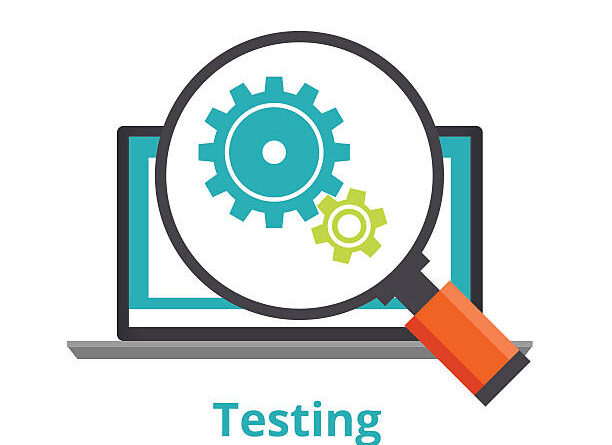Unlocking Your Career Potential: How QA Training and Placement Can Help You Succeed in Canada
As someone who has worked in the Quality Assurance (QA) field for several years, I can attest to the importance of proper QA training and placement. In this article, I will discuss the benefits of QA training and placement, the different types of programs available, how to choose the best program for you, and tips for succeeding in QA training and placement. Additionally, I will touch on the QA job market in Canada and the advantages of a career in QA.
Introduction to QA Training and Placement
Before we dive into the specifics of QA training and placement, it’s important to understand what QA is and why it’s important. QA is the process of ensuring that a product or service meets the desired level of quality before it is released to the public. This can include testing for functionality, usability, performance, and security.
In today’s competitive job market, having QA skills is becoming increasingly important. Employers want to ensure that the products and services they release are of the highest quality, and having a background in QA can set you apart from other job candidates.
QA training and placement programs are designed to provide individuals with the skills and knowledge they need to succeed in the field of QA. These programs can vary in length, content, and cost, but they all aim to prepare individuals for a career as a QA professional.
What is Quality Assurance (QA) and why is it important?
As mentioned earlier, QA is the process of ensuring that a product or service meets the desired level of quality before it is released to the public. This can include testing for functionality, usability, performance, and security.
QA is important because it helps to ensure that products and services are of high quality and meet the expectations of customers. Without QA, products and services could be released with critical bugs, security vulnerabilities, or usability issues, which could lead to negative reviews, customer dissatisfaction, and even legal issues.
Additionally, having a background in QA can set you apart from other job candidates and make you a more valuable asset to any organization. Employers want to ensure that their products and services are of the highest quality, and having a QA professional on their team can help them achieve this goal.
Benefits of QA Training and Placement
There are many benefits to QA training and placement, including:
1. Increased job opportunities
As mentioned earlier, having a background in QA can set you apart from other job candidates and make you a more valuable asset to any organization. By completing a QA training and placement program, you can gain the skills and knowledge you need to succeed in the field of QA and increase your job opportunities.
2. Higher earning potential
QA professionals are in high demand, and as a result, they often earn higher salaries than individuals in other fields. By completing a QA training and placement program, you can increase your earning potential and set yourself up for a successful career in QA.
3. Improved job satisfaction
Working in QA can be a rewarding career choice, as you are responsible for ensuring that products and services are of high quality and meet the expectations of customers. By completing a QA training and placement program, you can gain the skills and knowledge you need to succeed in this field and improve your job satisfaction.
Different types of QA Training and Placement programs
There are several different types of QA training and placement programs available, including:
1. Online courses
Online courses are a popular option for individuals who want to complete QA training on their own schedule. These courses often consist of video lectures, quizzes, and assignments, and can be completed from anywhere with an internet connection.
2. Bootcamps
Bootcamps are intensive, short-term training programs that aim to provide individuals with the skills and knowledge they need to succeed in a specific field. QA bootcamps typically last several weeks and are designed to give individuals a crash course in QA testing.
3. In-person training
In-person training programs are typically held in a classroom setting and are led by an instructor. These programs can vary in length, content, and cost, but they all aim to prepare individuals for a career as a QA professional.
Requirements for QA Tester Training and Placement
The requirements for QA tester training and placement can vary depending on the program you choose. However, there are some common requirements that you should be aware of, including:
1. Basic computer skills
To succeed in QA testing, you will need to be comfortable using a computer and have a basic understanding of computer software.
2. Attention to detail
QA testing requires a high level of attention to detail, as you will be responsible for identifying and reporting bugs, security vulnerabilities, and usability issues.
3. Strong communication skills
Effective communication is essential in QA testing, as you will be working closely with developers, product managers, and other members of your team.
How to choose the best QA Training and Placement program
Choosing the best QA training and placement program can be challenging, as there are many options available. To help you make an informed decision, consider the following factors:
1. Program length and content
Consider the length and content of the program and ensure that it aligns with your career goals and learning style.
2. Instructor qualifications
Check the qualifications and experience of the program instructors to ensure that they are knowledgeable in the field of QA.
3. Cost
Consider the cost of the program and ensure that it fits within your budget.
Tips for succeeding in QA Training and Placement
To succeed in QA training and placement, consider the following tips:
1. Stay organized
Keep track of assignments, deadlines, and course materials to ensure that you stay on track and complete the program on time.
2. Ask questions
If you are unsure about a concept or assignment, don’t be afraid to ask questions. This will help you to better understand the material and succeed in the program.
3. Network
Networking with other professionals in the field of QA can help you to learn about job opportunities and stay up-to-date on industry trends and best practices.
QA job market in Canada
The QA job market in Canada is strong, with many opportunities available for individuals with QA skills and knowledge. According to data from Job Bank Canada, the median hourly wage for QA testers in Canada is $33.65, with job growth projected to be steady over the next several years.
Additionally, there are many different types of organizations that hire QA professionals in Canada, including software development firms, financial institutions, and government agencies.
Advantages of a career in QA
There are many advantages to a career in QA, including:
1. Job security
QA professionals are in high demand, and as a result, they often enjoy a high level of job security.
2. High earning potential
As mentioned earlier, QA professionals often earn higher salaries than individuals in other fields.
3. Career growth opportunities
There are many opportunities for career growth and advancement in the field of QA, including management and leadership roles.
Conclusion
QA training and placement can be a valuable investment in your career, providing you with the skills and knowledge you need to succeed in the field of QA. By considering the different types of programs available, the requirements for QA tester training and placement, and the tips for succeeding in QA training and placement, you can set yourself up for a successful career in QA.
If you’re interested in pursuing a career in QA, I encourage you to explore the different QA training and placement programs available and find one that fits your needs and career goals. With the right training and preparation, you can unlock your career potential and succeed in the field of QA.




